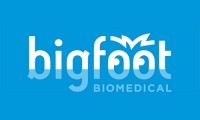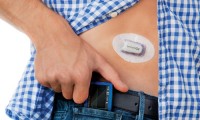-
Titan licenses robotic surgery intellectual property to Intuitive after failing to find buyer
- Source: drugdu
- 113
- June 1, 2023
-
Abbott wins FDA spinal cord stimulation approval to challenge Nevro for back pain market
- Source: drugdu
- 135
- May 20, 2023
-
FDA clears insertable cardiac monitor from Abbott
- Source: drugdu
- 117
- May 20, 2023
-
Study Suggests Increased Number of PMA Supplements Increase Recall Risk
- Source: drugdu
- 138
- April 20, 2023
-
Prioritize, Optimize And Modernize
- Source: https://invivo.pharmaintelligence.informa.com/IV124946/The-PostCOVID-Mantra-For-Medtechs-Prioritize-Optimize-And-Modernize
- 818
- April 6, 2022
-
FDA Recalls HeartMate device Manufactured by Abbott
- Source: Ddu
- 710
- June 7, 2018
-
Bigfoot brings in $55M Series B to propel integrated diabetes platform
- Source: MedCityNews
- 808
- March 30, 2018
-
FDA clears new Dexcom CGM that requires no patient calibration earlier than expected
- Source: MedCityNews
- 711
- March 29, 2018
-
mHealth Tools, AI Combine to Avert Serious Diabetic Health Issues
- Source: drugdu
- 1,246
- March 19, 2018
-
Medical device industry may see up to 5% growth
- Source: HealthExec
- 477
- March 13, 2018
your submission has already been received.
OK
Subscribe
Please enter a valid Email address!
Submit
The most relevant industry news & insight will be sent to you every two weeks.













